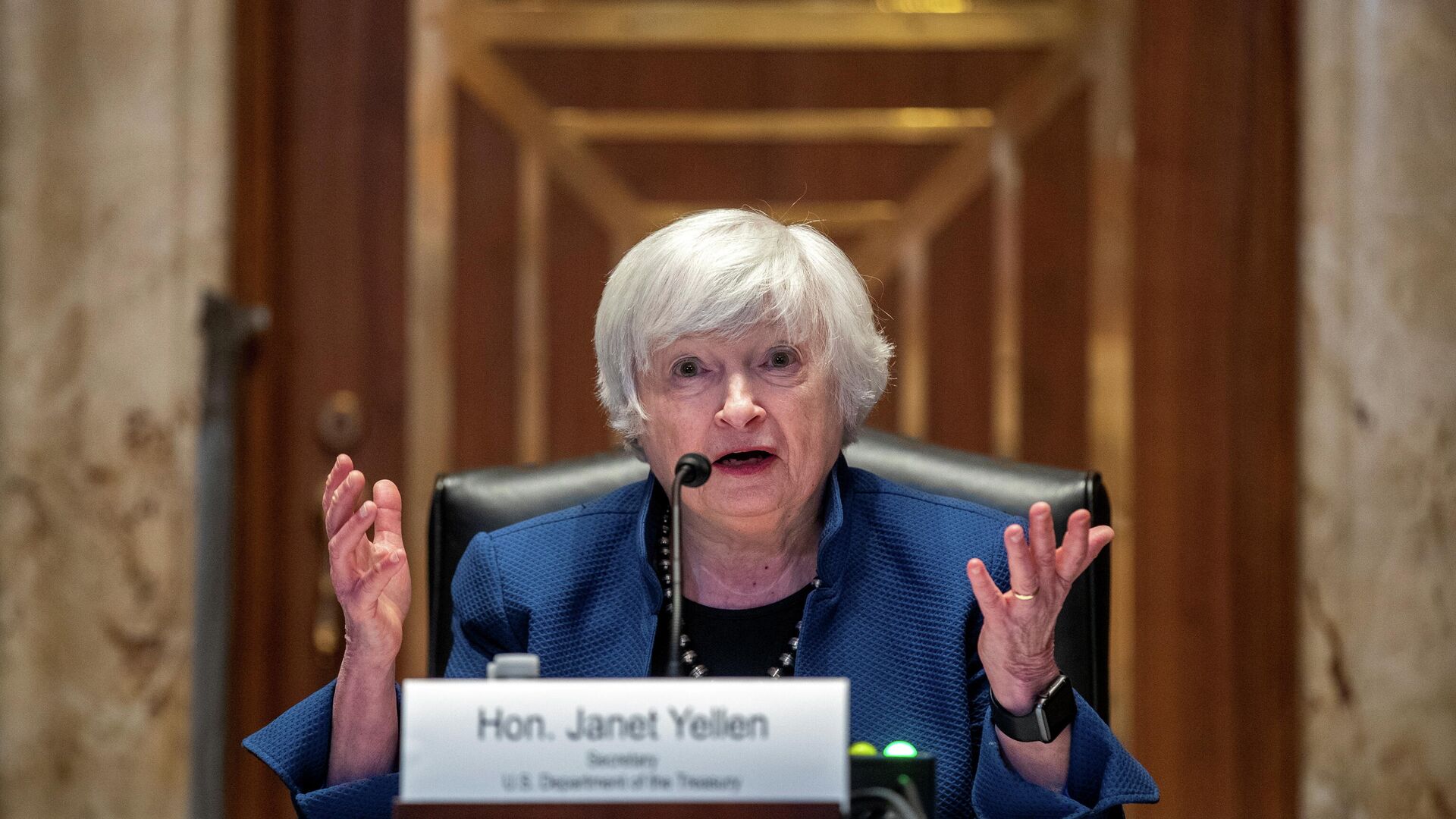Yellen Demands Protection for Whistleblowers After Failure to Oust IMF Director
15:43 GMT 14.10.2021 (Updated: 17:18 GMT 14.10.2021)

© REUTERS / POOL
Subscribe
The International Monetary Fund (IMF) concluded this week that it retains "full confidence" in director Kristalina Georgieva amid reports that the Bulgarian-born economist manipulated data in China's favour during her tenure as director of the World Bank. Georgieva has vocally denied the allegations.
US Treasury Secretary Janet Yellen has urged Western-dominated financial institutions to "enhance" whistleblower protection in the wake of the data-rigging scandal implicating former World Bank chief Georgieva.
"Results of the investigations into Doing Business irregularities could reduce confidence in the international financial institutions if there is not strong action to boost accountability, protect data integrity, and prevent misconduct. It is also important that international financial institutions consider ways to enhance internal systems for whistleblowing and whistleblower protections," Yellen said in a Treasury press release on Thursday.
Her comments come in the wake of a decision by the IMF's Executive Board on Monday to keep Georgieva on as managing director amid allegations in a US probe that she manipulated data in a business investment climate report during her time as director of the World Bank to improve China's position. The board determined that it could not be conclusively demonstrated that Georgieva "played an improper role."
Reacting to that decision, Yellen said in a statement that without "further direct evidence with regard to the role of the managing director this is not a basis for a change in IMF leadership," but warned that the Treasury would "monitor follow-up closely [and] evaluate any new facts or findings" on the matter. The Treasury chief insisted that the report raised "legitimate issues and concerns."
The allegations against Georgieva were made in a report by WilmerHale, a major US law firm. The report claimed that she applied "undue pressure" on staff preparing the World Bank's 2018 "Doing Business" rankings to improve China's rating from 85th to 78th.
Georgieva has vocally denied any wrongdoing in response to the probe and blasted the US law firm for failing to inform her that she was being investigated. "I disagree fundamentally with the findings and interpretations [of the report]," she said in a statement last month.
Nobel Prize-winning economist Joseph Stiglitz accused World Bank executives of attempting a "hatchet job" against Georgieva, while fellow economist Mark Weisbrot suggested that Congress should investigate World Bank President David Malpass's alleged attempts to smear the Bulgarian economist, and called the WilmerHale report a "politically motivated coup attempt."
Yes, thanks @petersgoodman, the effort to oust Georgieva from IMF is a politically motivated coup attempt-- look who instigated & paid for it, World Bank President David Malpass; far-right Trump appointee who was against Georgieva's efforts to reduce poverty & carbon emissions https://t.co/k4J7Bn1U2e
— Mark Weisbrot (@MarkWeisbrot) October 10, 2021
Weisbrot's support for Georgieva is telling and gives some indication of the political forces supporting or opposed to the IMF chief. Weisbrot been known for his progressive views on economics and US foreign policy, demanding an end to US interventionism abroad, criticising the model of globalisation promoted by Washington, the IMF, and the World Bank, and praising the Venezuelan government for its efforts to tackle poverty under Hugo Chavez.
Georgieva has been chairwoman and MD of the IMF since 2019. Before that, she worked as chief executive of the World Bank Group between 2017 and 2019, having served in a range of positions at the organisation since 1993.
The IMF and World Bank were established during the Bretton Woods Conference of 1944, with the former institution initially envisioned as an "economic United Nations" of sorts, and the latter seen as a means to assist nations with development projects. As the Cold War between the West and the Soviet Union intensified, however, the institutions became a means for the US and its allies to assist partner nations, and to put pressure on adversaries to carry out economic reforms in exchange for loans and other assistance. In the 1990s, the institutions pressured Russia and other post-Soviet countries to reform their economies, slash social spending, and end subsidies to industries and agriculture. These policies helped lead to a historically unprecedented drop in economic activity and public well-being, and caused millions of premature deaths across the former USSR.



